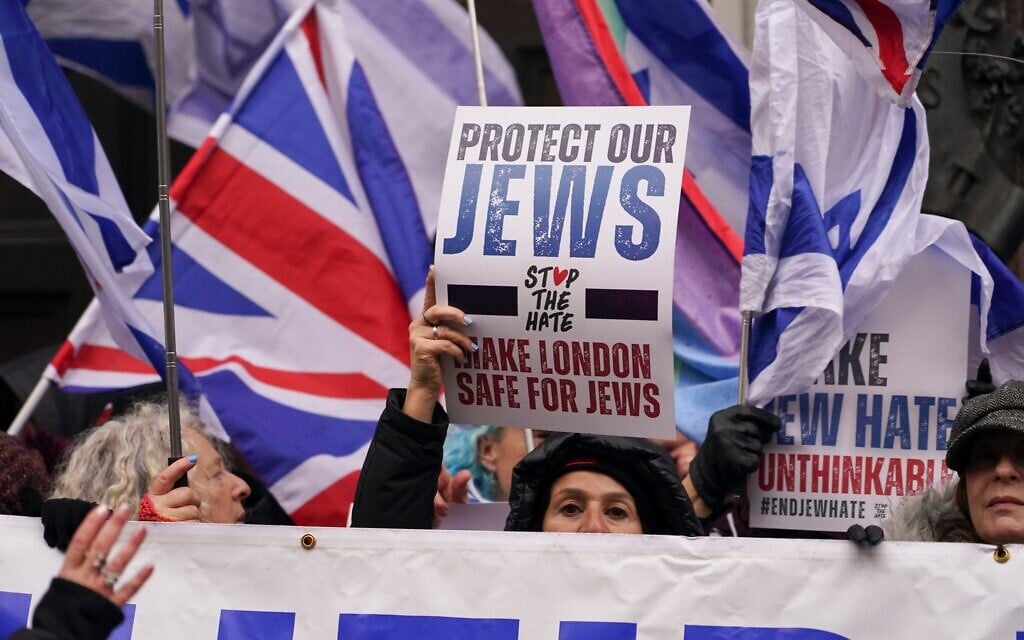UK Jewish Life Faces Growing Challenges, Report Says

The Growing Challenge of Antisemitism in the UK
The rising prevalence of antisemitism within civil society has left many Jews in the United Kingdom feeling isolated, with few places outside their own community where they can seek support or feel safe. This concern was highlighted in a recent report by the Board of Deputies of British Jews, which identified significant issues within the health service, unions, and professional organizations.
The report was prepared by the Board’s Commission on Antisemitism, which gathered testimonies from various groups, including organizations, staff networks, students, and members of the Jewish community. The findings reveal a “specific unaddressed issue of antisemitism” within the UK National Health Service (NHS) and “hidden barriers” that hinder Jewish artists and performers.
Co-chairs of the commission, Lord John Mann, an Independent Adviser on Antisemitism, and Dame Penny Mordaunt, a former Conservative secretary of state for defense, emphasized that the Jewish community increasingly feels tolerated rather than respected. They noted that the terrorist attack in Israel on October 7, 2023, led by Hamas, triggered a sharp rise in anti-Jewish hatred across the UK, affecting streets, online spaces, education, and other aspects of civil society.
According to data from the Community Security Trust (CST), which provides security for Jewish institutions, there were 3,528 recorded antisemitic incidents in 2024—the second-highest number ever recorded. The highest was in 2023, with 4,103 incidents. These figures underscore a troubling trend that has been exacerbated by recent events.
Board of Deputies President Phil Rosenberg pointed out that while the surge in antisemitism shares similarities with past conflicts in the Middle East, it is distinct in its spread into civil society. He stated that British Jews now face challenges in workplaces, cultural spaces, and even the NHS, leading to a sense of helplessness.
Key Recommendations from the Report
To address these concerns, the commission proposed ten recommendations aimed at improving equality training, ensuring that education on antisemitism is included, and preventing discrimination against Jewish members in professional bodies. The report calls for precise action to ensure that no one faces abuse or discrimination while pursuing their career or accessing public services.
Mordaunt emphasized the need for practical solutions that can be implemented swiftly to improve people's experiences. Mann expressed his dismay over the ongoing antisemitism faced by the Jewish community since October 7th, highlighting the shocking experiences reported by the commission.
While the report did not list specific cases, it noted that the Jewish way of life and the wellbeing of individuals and families are increasingly challenged. The authors stressed that antisemitism is evolving, requiring targeted actions to address identifiable gaps.
Specific Measures for the NHS
One of the key areas addressed in the report is the NHS, where evidence showed a specific unaddressed issue of antisemitism. The board recommended a summit of NHS leaders across the UK to tackle this matter, along with basic training on contemporary antisemitism at every NHS trust.
The report also emphasized that those employed to look after others have an additional duty to ensure that individuals feel comfortable seeking assistance. It warned against activities or attire that undermine trust in the universality of services provided, such as some NHS staff wearing Palestinian flag pins on uniforms.
Professional Organizations and Unions
The commission also called on professional organizations and unions to ensure equal treatment and respect for all Jewish members. Evidence suggested that some individuals face discrimination when needing membership in a professional body to work, leading to calls for third-party support if necessary.
In the arts sector, the report highlighted hidden barriers that prevent Jewish involvement. It urged that contract compliance should be leveraged when public or private sector organizations are involved with venues that prohibit Jewish participation.
Police Consistency and Government Action
Finally, the report called for consistent decision-making and standards across all police forces in the UK, citing current inconsistencies. It urged the Police Chiefs Council and the College of Policing to propose measures to ensure uniform handling of antisemitic crimes.
Overall, the report underscores a failure to apply protections equally to Jewish people in vulnerable positions, as stated by Rosenberg. The call for action remains urgent, emphasizing the need for comprehensive and immediate steps to combat antisemitism in all its forms.
Post a Comment for "UK Jewish Life Faces Growing Challenges, Report Says"
Post a Comment